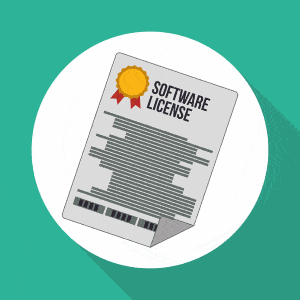 When you license your application to others, there are software licensing agreement legal issues that often involve a dishonest licensee. Here are three of the most common types of licensee misconduct.
When you license your application to others, there are software licensing agreement legal issues that often involve a dishonest licensee. Here are three of the most common types of licensee misconduct.
1. Ignoring EULA Limitations
Unfortunately, it’s common for someone to purchase an end user license agreement (EULA) for an application but then promptly violate the license by doing something prohibited. For example, a customer who buys a single user EULA may improperly duplicate the software for use for others, such as co-workers, family, and friends.
Related Article: What Is A Software Agreement?
If there aren’t security features built within the app to limit this type of abuse, it can whittle away at your profits when it becomes easier to obtain a pirated version than to buy a legitimate license.
For software as a service (SaaS), the threat also exists where a single username and password is given out to multiple people to use for access. Restricting IP addresses for logins and prohibiting simultaneous multiple logins to a single user account are a couple of tech means for reducing (but not eliminating) this SaaS risk.
2. Misusing The Application For A Prohibited Purpose
Although your software is designed for a legitimate purpose, too often applications can be misused by licensees for unethical or illegal conduct.
For example…
- A CRM application might be misused to send spam emails.
- A video editing app could be used to add a Hollywood celebrity’s face to a body in a porn movie.
- Or a program for trading equities might be misconfigured for illegal online gambling.
3. Creating A Competing Software Application
What if a software customer suddenly became your competitor with an application that looks like it has ripped off features and design from your app? Was the new app created independently or was your intellectual property stolen?
How To Address Software Licensing Agreement Legal Issues
These software licensing agreement legal issues can often be prevented with an iron-clad license that clearly states what the licensee can and cannot do…and provides sufficient penalties for violating the license that even a dishonest customer will think twice before engaging in misconduct.
An experienced software lawyer can provide you with a customized software license that limits your risks from these and other types of customer bad behavior.
